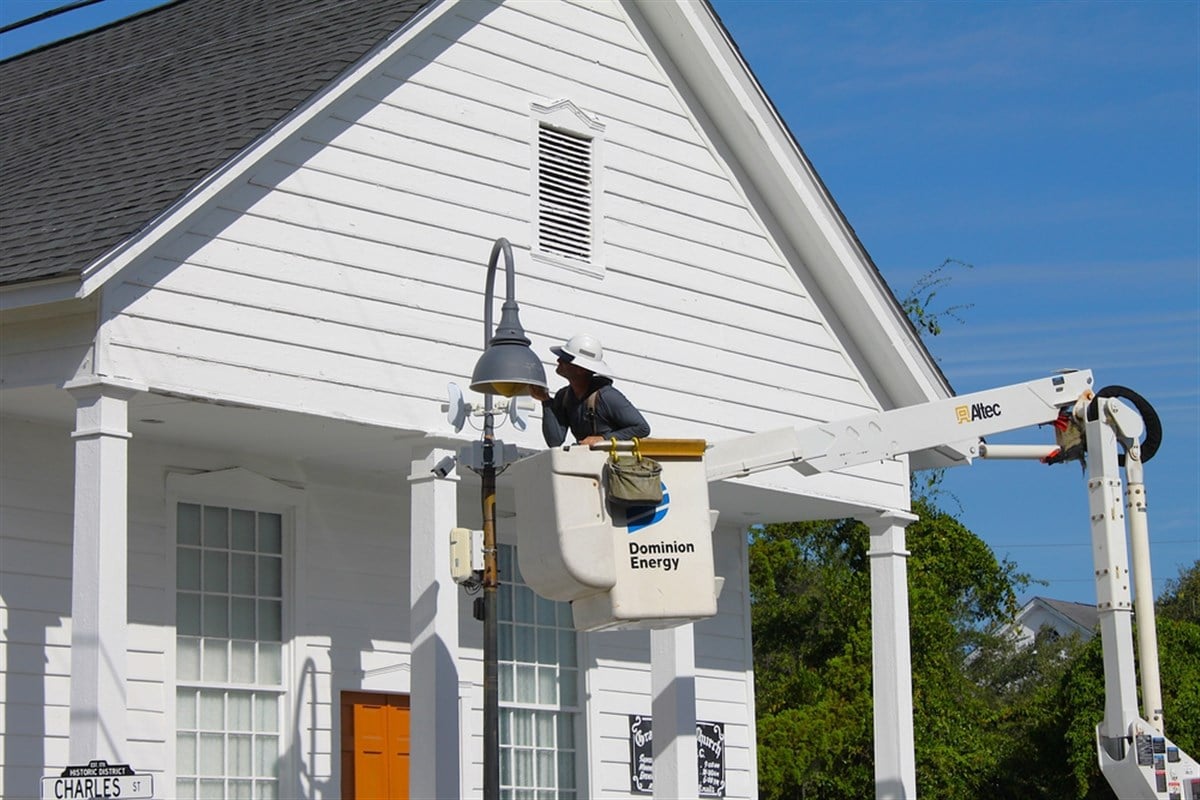DUK Stock Recent News
DUK LATEST HEADLINES
Even for Americans living outside of the service areas of giant utilities companies, they've earned a reputation for market dominance. NextEra Energy NYSE: NEE, Southern Company NYSE: SO, and Duke Energy NYSE: DUK command a collective market cap of $344.24 billion and have been reliable investments.
Grants will fund programs focused on protecting and improving natural environments, biodiversity and community resilience Funds will benefit 19 environmental impact programs, including conservation groups and community-led initiatives Over $6.6 million in environmental impact grants have been awarded over the past five years CHARLOTTE, N.C. , Aug. 18, 2025 /PRNewswire/ -- Duke Energy today announced $550,000 in grants for environmental impact programs in North Carolina.
For more than three decades, the pumped storage hydro station in South Carolina has performed a vital role as the largest "battery" on the company's system Effort supports the intent of South Carolina leaders to address growth by continuing to operate proven electricity capacity in the state GREENVILLE, S.C. , Aug. 15, 2025 /PRNewswire/ -- Duke Energy has announced its submission of the final license application to the Federal Energy Regulatory Commission (FERC) for the Bad Creek Pumped Storage Hydroelectric Station, located near Salem, S.C.
Filed today for approval with state and federal regulators, operating as one utility could save customers even more than the $1 billion in cost savings already achieved since 2012 If approved, no bill or service changes would occur to retail rates before 2027 due to the combination CHARLOTTE, N.C. , Aug. 14, 2025 /PRNewswire/ -- Today, Duke Energy asked state and federal regulators for permission to combine its two electric utilities in the Carolinas.
Aug. 11 is National Safe Digging Day, recognizing the importance of having underground utility lines marked prior to digging or excavating Duke Energy reported damage to underground electric and natural gas lines more than 5,000 times this year Video here: Learn how the 811 process works CINCINNATI , Aug. 11, 2025 /PRNewswire/ -- Aug. 11 is National Safe Digging Day (also known as 811 Day), and Duke Energy Ohio/Kentucky is advising customers and excavators to call 811 at least three business days before beginning any outdoor project that involves digging. What is 811?
HOUSTON, Aug. 07, 2025 (GLOBE NEWSWIRE) -- When the power goes out, every second matters. That's why DataCapable, the utility technology company redefining outage detection and response, has made a pivotal hire that underscores its commitment to customer-centric innovation.
Duke Energy Corporation (NYSE:DUK ) Q2 2025 Earnings Conference Call August 5, 2025 10:00 AM ET Company Participants Abby Motsinger - Vice President of Investor Relations Brian D. Savoy - Executive VP & CFO Harry K.
DUK's earnings jump 10.6% and revenues beat estimates in Q2, driven by new rates and strong natural gas sales growth.
Duke Energy said on Tuesday it will sell a 19.7% indirect stake in its Florida business to Brookfield for $6 billion in cash, helping fund a $4 billion increase in its capital spending plan.
Brookfield invests in a 19.7% non-controlling equity interest in Duke Energy Florida for $6 billion Partnership supports $4 billion increase in Duke Energy Florida's five-year capital plan aimed at enhancing company's ability to meet customers' rapidly growing and evolving energy demands Attractive valuation and efficient form of financing enables 100 basis point increase in Duke Energy's long-term FFO/Debt target to 15%, supports 5% to 7% EPS growth rate through 2029 Duke Energy to remain majority owner and operator of DEF; no changes to workforce, operations or Florida leadership team CHARLOTTE, N.C. , Aug. 5, 2025 /PRNewswire/ -- Duke Energy (NYSE: DUK) today announced it has entered into a definitive agreement for Brookfield, through its Super-Core Infrastructure strategy, to hold a 19.7% indirect equity interest in Duke Energy Florida for an aggregate amount of $6 billion.









